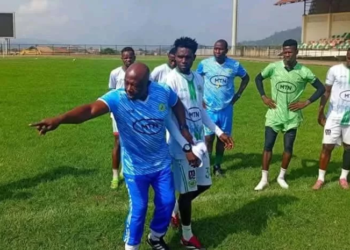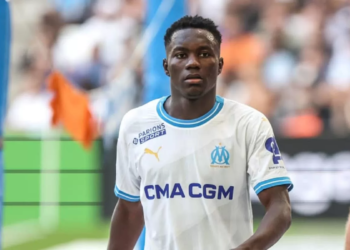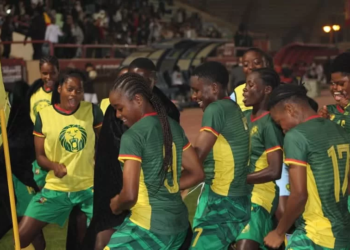Issa Hayatou’s dreams of beating FIFA president Sepp Blatter in next month’s election in Seoul probably ended at two o’clock on Thursday in Stockholm. They had lasted for just over a week.
Of course, Hayatou might yet come storming back and send President Blatter crashing to a shock defeat at the FIFA Congress on May 29, two days before the start of the World Cup finals.
But Sepp Blatter knows better than anyone else in soccer how to win elections and influence people, proving it again at the UEFA Congress in Stockholm.
There is no doubt that Hayatou, the statesman-like 55-year-old president of the African Football Confederation (CAF), is an astute politician.
One of his 16 brothers was the former Prime Minister of Cameroon and is now the Governor of the State Bank.
Mr Hayatou himself is a member of the International Olympic Committee (IOC) and has been on FIFA’s executive committee for the last 12 years. You do not rise that far without knowing how to play the game.
He knows soccer politics inside out, knows how FIFA works, knows how Blatter works, and has called for a complete overhaul of the way it all works in his election manifesto published just eight days ago in Paris.
But as the former British Prime Minister Harold Wilson famously said many years ago: « A week is a long time in politics, » and never was that cliche more vividly illustrated than in Stockholm.
ONE WEEK LATER
Exactly one week after Hayatou launched his manifesto, the clipped, crisp tones of Gerhard Aigner, UEFA’s chief executive, began reading out the results of the UEFA elections.
By the time the voting was complete and all the results counted, Blatter was smiling broadly in the conference auditorium, shaking hands with as many people as he could. UEFA’s delegates had voted Blatter supporters Michel Platini of France and Gerhard Mayer-Vorfelder of Germany on to the FIFA executive, and voted off Per Ravn Omdal, the experienced Norwegian delegate, who is a close ally and friend of Lennart Johansson, the UEFA president and Hayatou’s most senior backer.
All this means that when the new executive committee meets in the autumn, the anti-Blatter faction is unlikely to be in the majority. For the first time since he was elected president in 1998, most on the executive committee will support the policies of President Blatter.
MESSAGE TO SEPP
The message from UEFA to Blatter was: despite appeals from our president Johansson to support Hayatou, we will support you.
We will support you despite allegations of financial mismanagement, despite your public falling-out with your general secretary Michel Zen-Ruffinen, despite your public support of the controversial CONCACAF president Jack Warner, your decision to suspend the audit committee set up to examine FIFA’s finances and despite the fact you might face a vote of « no confidence » when the current FIFA executive committee meets on May 3.
Despite all that, we will support you.
ONE REASON WHY
And here is just one reason why, perhaps, they will continue to support Blatter. The way it works is completely open, above board and totally honest.
Big countries like Germany, France and Spain, loyal to Blatter, are able to offer above-board largesse to the smaller nations in terms of coaching clinics, technical assistance, help with structuring their administrations and even a match against the national team to help raise money.
They build friendships with the smaller associations – and then when the time comes to vote, that small nation casts its vote for the country that has helped it most.
If the representative of that country happens to be a supporter of the president of FIFA, what could be fairer than that?
If that representative then should get elected on to the FIFA executive committee and help support the president in that way – what could be more democratic ?
Of course it is not quite as simple as all that, but that is the principle involved in soccer politics. And no one understands that better than President Blatter.
(C) Reuters Limited 2002.











